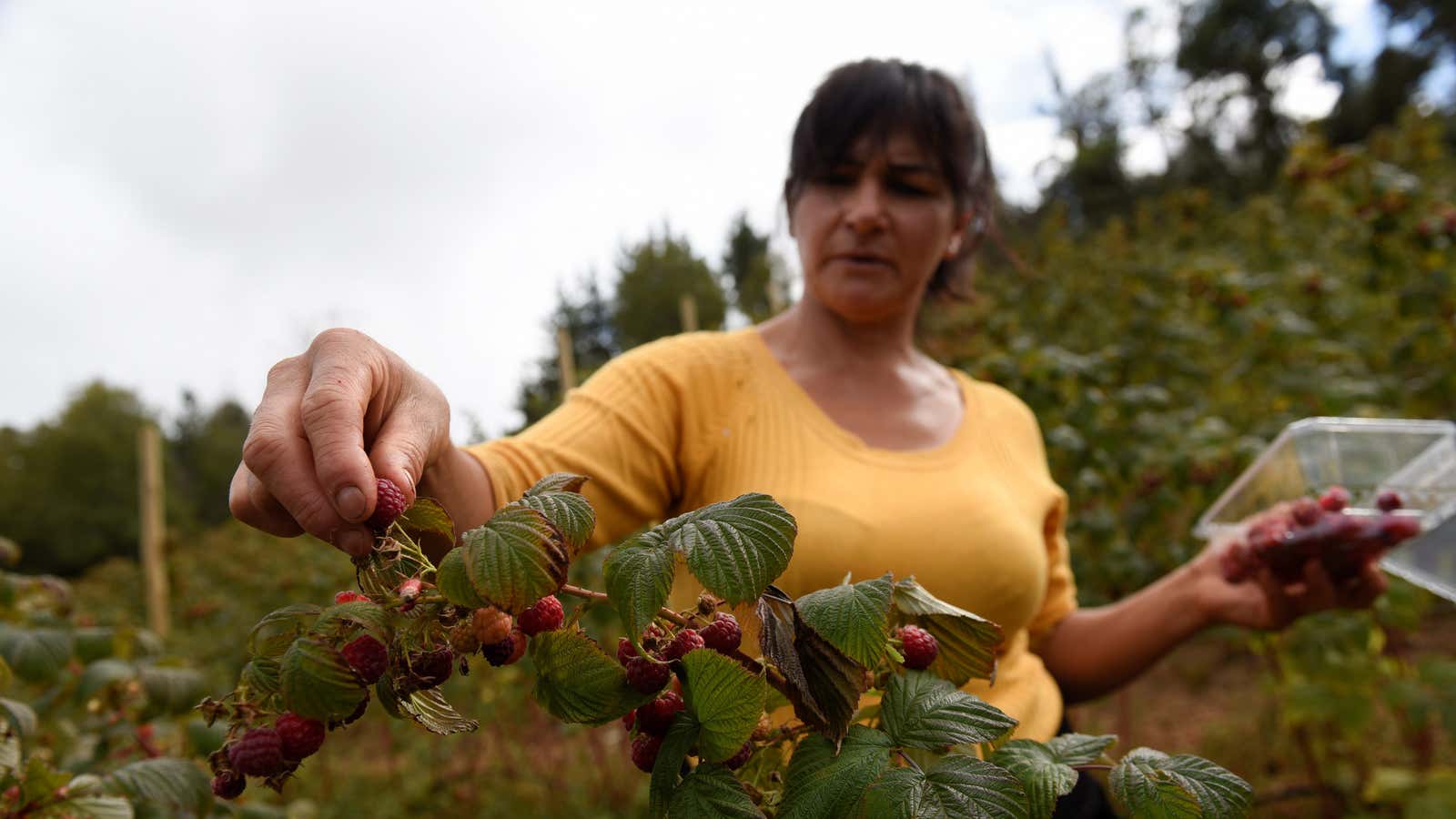In the field of economic development, not all countries are equal—or equally interesting to economists.
Take Chile. Adjusted for population, it’s by far the country most written about in the Journal of Economic Development (JDE), one of the top journals on the topic. Much bigger economies, including India and Brazil, meanwhile, are considerably less popular.
Those are the findings of an informal review by Jessica Leight, a development economist at the International Food Policy Research Institute. She looked at papers published in JDE between October 2019 and October 2021, and adjusted the numbers based on the population of the countries they studied.
Leight also looked at papers published in the top five economic journals—the American Economic Review, the Quarterly Journal of Economics, the Review of Economic Studies, Econometrica, and the Journal of Political Economy—and found similar trends.
The research project came about while pursuing a different, though somewhat related, question: Where does funding for randomized controlled trials in economics come from? The answer to that query also reveals big disparities in which countries get studied, and by whom.
Why do economists study some countries more than others?
Leight, who published her findings on Twitter, identified several reasons why some countries seem to be economists darlings’ while others barely register in economic journals. Chief among them is a country’s pace of growth: A rapidly growing country sparks interest because it offers lessons for policymakers.
Chile, whose economy expanded by more than 270% over the past 20 years, is an example of that. It helps that it produces solid economic data, another factor that determines whether economists can publish serious work on a country’s economy, said Leight.
Geography matters too: Many development economists tend to cluster on the US’s east coast—closer to universities and funding—and are more likely to focus on nearby countries like Mexico than ones farther away, like the Philippines, Leight added.
Language barriers are a research hurdle
Another factor that attracts economists to certain countries is whether or not they speak the local language, says Leight. Likewise, whether the economists speak English, the language of the top economic journals, plays a role in how many papers they publish.
That’s perhaps why papers about a country with an official language other than English, and with fewer English speakers, like Burkina Faso, are rarer. (There were no papers studying the west African country in Leight’s analysis). Meanwhile, Uganda, where English is an official language, was the only sub-saharan African country that had more than five papers per billion people published in JDE in the past two years.
This English-focused bias is partly driven by the fact that the main funders of economic development—such as the US Agency for International Development and the UK’s Foreign, Commonwealth & Development Office—favor English-dominant countries.
While economists can’t control where aid agencies choose to put their money, or the quality of data coming from a country, they can decide to learn a language, which Leight thinks should be a requirement in her profession.
“It’s not an official part of our training, nor is it something that I think is explicitly highly valued early on,” Leight said. “This also fits to a broader discussion about your diversity in the profession, so if we have a broad cross section of people from different parts of the world, then of course they will naturally have a stronger set of language skills.”
A local economist helped study farmers in Vietnam
There are several efforts underway to diversify development research. For example, France’s Fund for Innovation in Development, a new initiative chaired by Nobel prize winning economist Esther Duflo, will direct some of its resources towards research in francophone African countries, which have been barely studied because of language barriers.
The Standing Panel on Impact Assessment (SPIA) under the Consultative Group for International Agricultural Research (CGIAR), meanwhile, already turns to local economics pre-docs in the countries it studies for expertise and advice, said agricultural economist James Stevenson, a senior researcher at the agency.
The program has been running this way for three years and recently entered Vietnam with the help of Khoa Vu, an applied economics PhD student at the University of Minnesota. Vu connected Stevenson, whose work focuses on farming technology, with Thao Bach, a Vietnamese economics masters student at the University of Tokyo who could help the team with both language and econometrics skills.
“We’re quite lucky,” Stevenson said. “You have these folks that have been trained in good universities abroad. They are often wanting to be able to apply them back in their home countries.”
